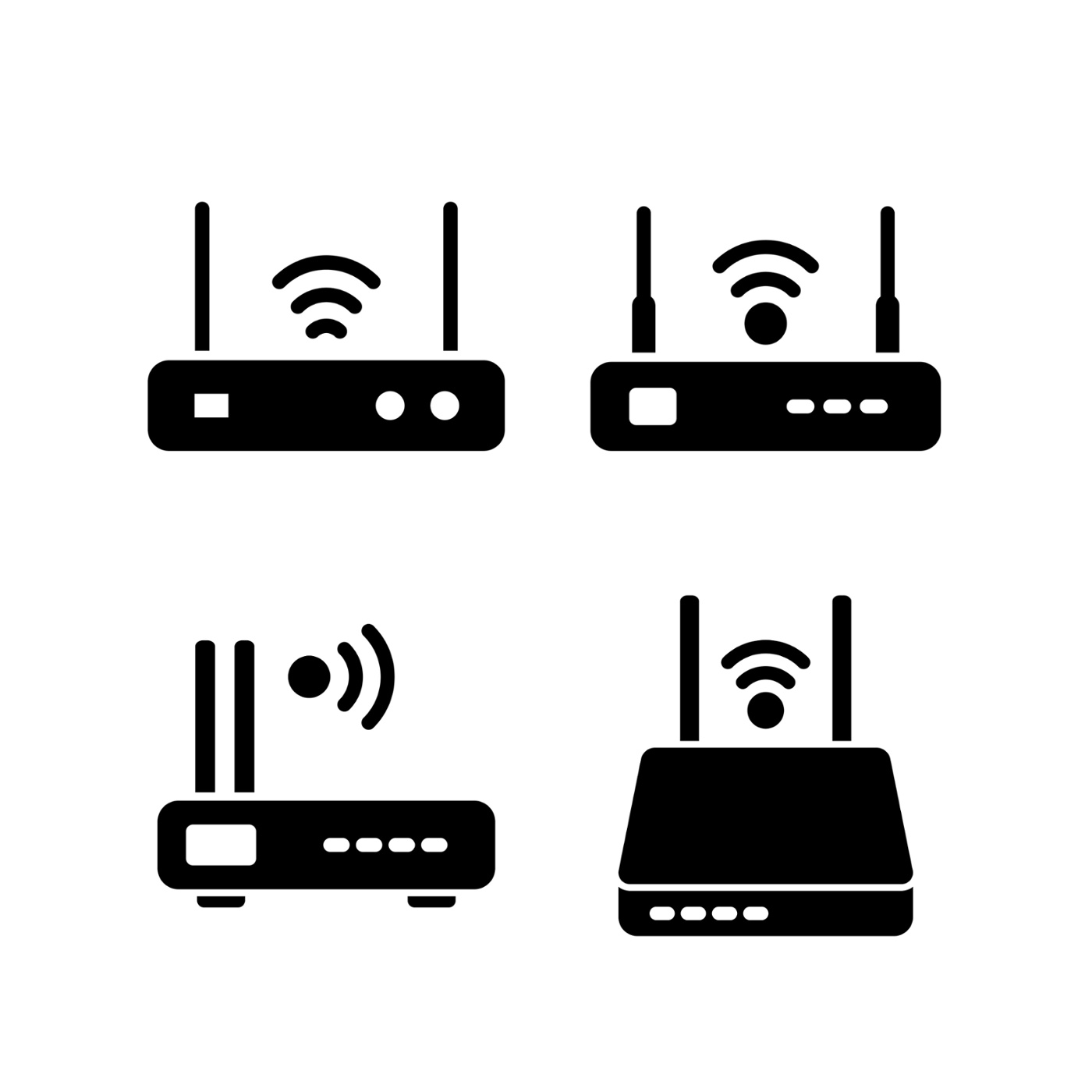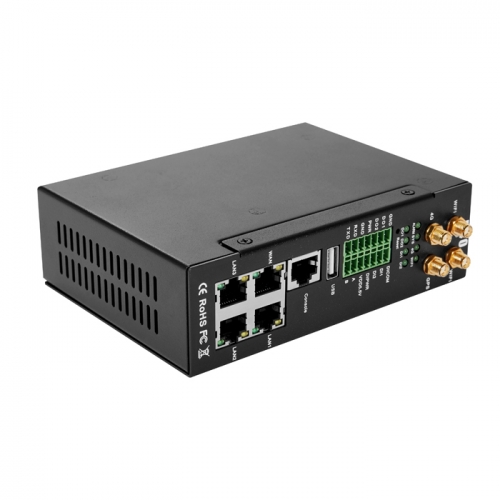Choosing the right IoT router is a critical decision in setting up a smart home ecosystem. The increasing demand for interconnected devices has made it essential to invest in reliable and efficient routers that cater specifically to IoT needs. An IoT router ensures seamless communication between devices, enhancing security and performance.
As smart technology continues to evolve, more households are adopting IoT devices. From smart thermostats to voice-controlled assistants, these devices rely on stable and secure internet connections. Selecting the wrong router can lead to poor performance, security vulnerabilities, and a frustrating user experience.
This guide will walk you through the key considerations when choosing an IoT router, offering expert advice and practical tips to ensure your smart home operates smoothly. Whether you're a tech enthusiast or a newcomer to IoT, this article will provide you with the information you need to make an informed decision.
Read also:The Longest Name In The World A Fascinating Journey Through Names And Records
Table of Contents
- Understanding IoT Router
- Key Features to Consider
- Bandwidth and Speed
- Security Measures
- Network Coverage
- Device Compatibility
- Budget and Cost
- Top IoT Router Brands
- Installation Tips
- Frequently Asked Questions
Understanding IoT Router
An IoT router is specifically designed to manage the unique demands of smart devices. Unlike traditional routers, IoT routers are optimized for handling multiple devices simultaneously while maintaining high security standards. They often come equipped with features such as enhanced encryption protocols, dedicated IoT bands, and advanced Quality of Service (QoS) settings.
When selecting an IoT router, it's important to recognize the differences between standard routers and IoT routers. For example, IoT routers are better suited for managing the large number of devices typically found in a smart home environment. They also prioritize security, which is crucial given the sensitive data these devices often handle.
Additionally, IoT routers offer features like traffic segmentation, allowing users to separate their smart device networks from personal devices, thus improving security and reducing the risk of unauthorized access.
Key Features to Consider
Before purchasing an IoT router, there are several key features you should evaluate:
1. Connectivity Protocols
Modern IoT routers support various connectivity protocols, including Wi-Fi, Bluetooth, Zigbee, and Z-Wave. Each protocol has its strengths and weaknesses, so it's important to choose a router that supports the protocols used by your devices.
2. Network Management Tools
Advanced network management tools are essential for monitoring and controlling your IoT devices. Look for routers that offer user-friendly interfaces and mobile apps for easy management.
Read also:How Many Kids Does Eminem Have A Comprehensive Guide To Eminems Family Life
3. Firmware Updates
Regular firmware updates are crucial for maintaining security and performance. Ensure the router you choose has a robust update system to keep it protected against emerging threats.
Bandwidth and Speed
Bandwidth and speed are critical factors when choosing an IoT router. With multiple devices connected simultaneously, it's important to select a router that can handle high data throughput without compromising performance.
Consider the following tips:
- Look for routers with dual or tri-band capabilities to reduce congestion.
- Ensure the router supports the latest Wi-Fi standards, such as Wi-Fi 6, for faster speeds.
- Check the router's specifications for upload and download speeds to ensure they meet your requirements.
According to a report by Cisco, global IP traffic is expected to reach 4.8 zettabytes per year by 2023. This highlights the growing demand for high-speed internet, making it essential to choose a router that can keep up with the increasing data usage.
Security Measures
Security is a top priority when it comes to IoT devices. A compromised router can expose sensitive information and allow unauthorized access to your smart home network. Here are some security features to look for:
1. Encryption
Ensure the router supports strong encryption protocols, such as WPA3, to protect your data from hackers.
2. Firewall
A built-in firewall is essential for blocking malicious traffic and preventing unauthorized access to your network.
3. Guest Networks
Separate guest networks can help isolate your IoT devices from personal devices, reducing the risk of security breaches.
A study by Symantec found that over 50% of all IoT devices are vulnerable to medium or high-severity attacks. Investing in a secure IoT router can significantly reduce this risk.
Network Coverage
Network coverage is another important consideration when choosing an IoT router. A router with inadequate coverage can lead to dead zones and poor connectivity, especially in larger homes or offices.
To ensure optimal coverage:
- Choose a router with multiple antennas for better signal strength.
- Consider mesh networking systems for larger spaces, as they provide seamless coverage throughout the entire area.
- Position the router centrally and avoid obstacles that may interfere with the signal.
According to a survey by Parks Associates, 38% of U.S. broadband households experience Wi-Fi coverage problems. Addressing these issues with a well-planned router setup can greatly improve your smart home experience.
Device Compatibility
Compatibility with your existing devices is crucial when selecting an IoT router. Ensure the router supports the protocols and standards used by your smart devices. Additionally, check for compatibility with popular smart home ecosystems like Amazon Alexa, Google Assistant, and Apple HomeKit.
Some key considerations include:
- Look for routers that support both 2.4GHz and 5GHz bands for optimal compatibility.
- Ensure the router can handle the number of devices you plan to connect without performance degradation.
- Check for firmware updates that may enhance compatibility with new devices in the future.
As the IoT market continues to grow, compatibility will become even more important. A versatile router can future-proof your smart home setup, allowing you to add new devices as needed.
Budget and Cost
IoT routers vary significantly in price, depending on their features and capabilities. While it's tempting to opt for the cheapest option, it's important to balance cost with performance and security.
Consider the following:
- Set a budget that aligns with your needs and the number of devices you plan to connect.
- Invest in a router with features that provide long-term value, such as advanced security and network management tools.
- Look for deals and promotions that may offer additional savings without compromising quality.
According to a report by Statista, the global IoT market is expected to reach $1.5 trillion by 2030. As the demand for smart devices grows, investing in a high-quality IoT router can provide significant returns in terms of performance and security.
Top IoT Router Brands
Several reputable brands specialize in IoT routers, offering a range of options to suit different needs and budgets. Some of the top brands include:
1. Netgear
Known for its innovative designs and advanced features, Netgear offers a wide range of IoT routers that cater to both home and business users.
2. TP-Link
TP-Link is a popular choice for budget-friendly IoT routers that don't compromise on performance or security.
3. Linksys
Linksys provides reliable and user-friendly IoT routers that are ideal for beginners and tech enthusiasts alike.
Choosing a reputable brand ensures you receive a quality product backed by excellent customer support and regular firmware updates.
Installation Tips
Proper installation is key to maximizing the performance of your IoT router. Follow these tips for a successful setup:
- Place the router in a central location to ensure optimal coverage.
- Avoid placing the router near obstacles like walls or metal objects that may interfere with the signal.
- Use Ethernet cables for critical devices that require stable connections, such as smart TVs or gaming consoles.
- Set up a strong and secure password to protect your network from unauthorized access.
Taking the time to properly install and configure your IoT router can significantly improve its performance and security, ensuring a seamless smart home experience.
Frequently Asked Questions
1. What is the difference between an IoT router and a regular router?
An IoT router is specifically designed to handle the unique demands of smart devices, offering enhanced security, advanced network management tools, and support for multiple connectivity protocols.
2. How often should I update my router's firmware?
It's recommended to update your router's firmware regularly, ideally every few months, to ensure optimal performance and security.
3. Can I use an IoT router for non-IoT devices?
Yes, IoT routers can handle both IoT and non-IoT devices. However, they are optimized for managing the specific needs of smart devices.
By addressing these common questions, you can better understand the role and importance of IoT routers in your smart home setup.
Conclusion
Choosing the right IoT router is essential for creating a secure and efficient smart home environment. By considering factors such as bandwidth, security, network coverage, and device compatibility, you can select a router that meets your specific needs and budget.
We encourage you to share your thoughts and experiences in the comments section below. Additionally, feel free to explore our other articles for more tips and advice on building and maintaining a smart home. Together, let's create a safer and more connected future!


